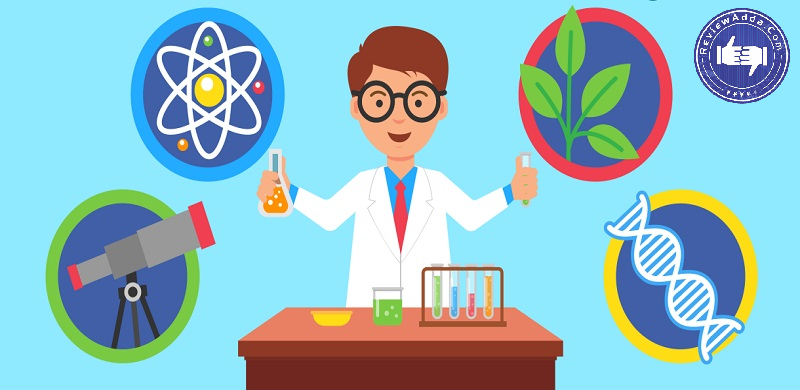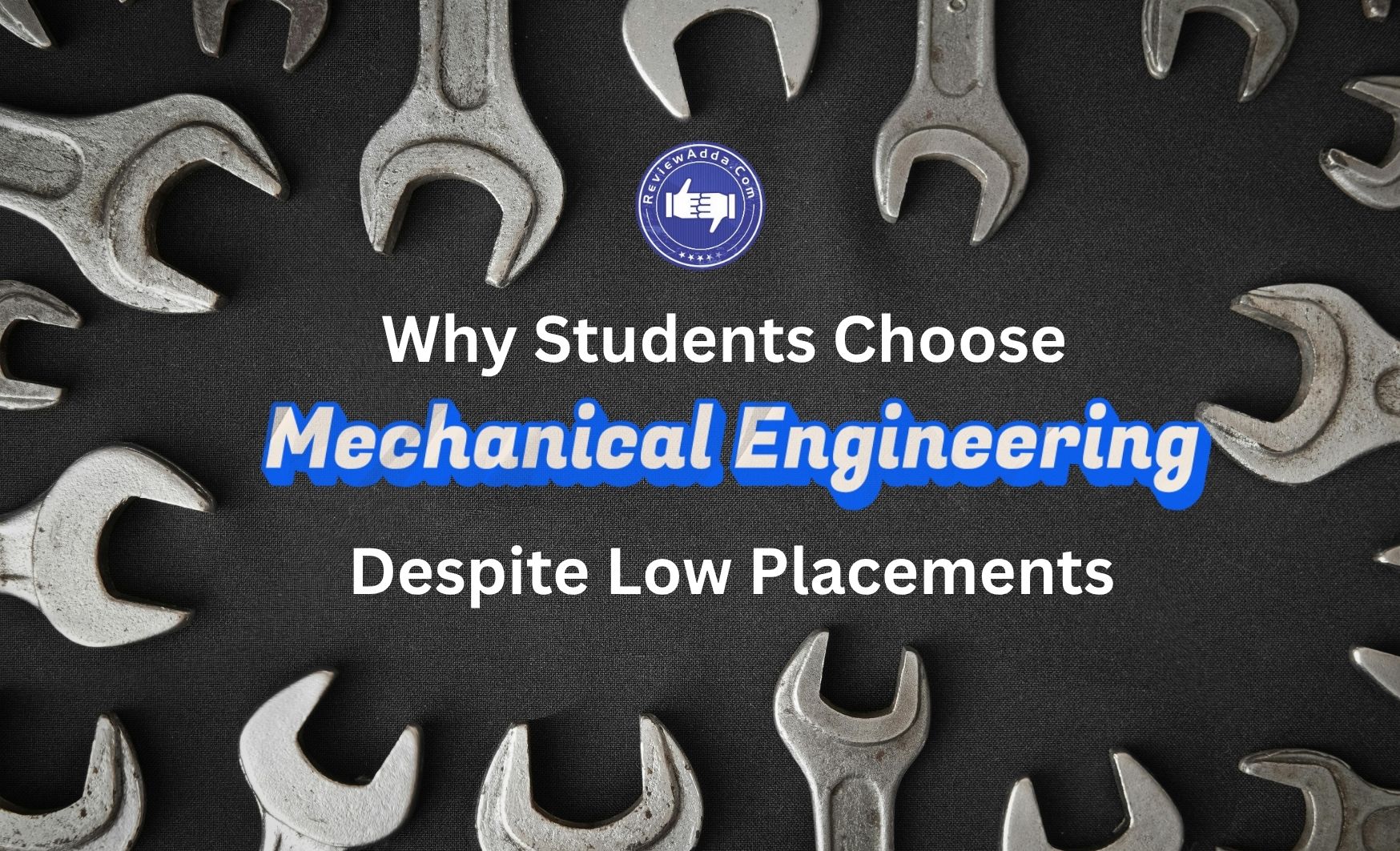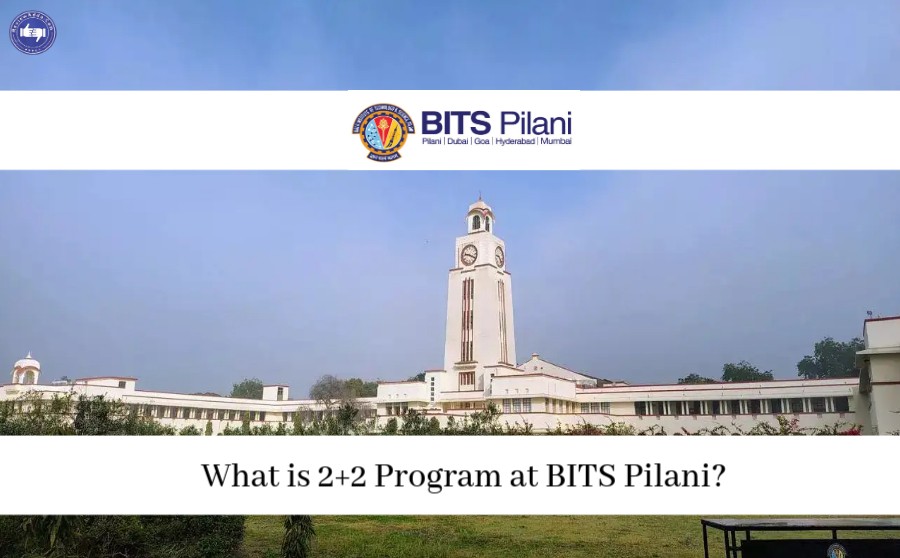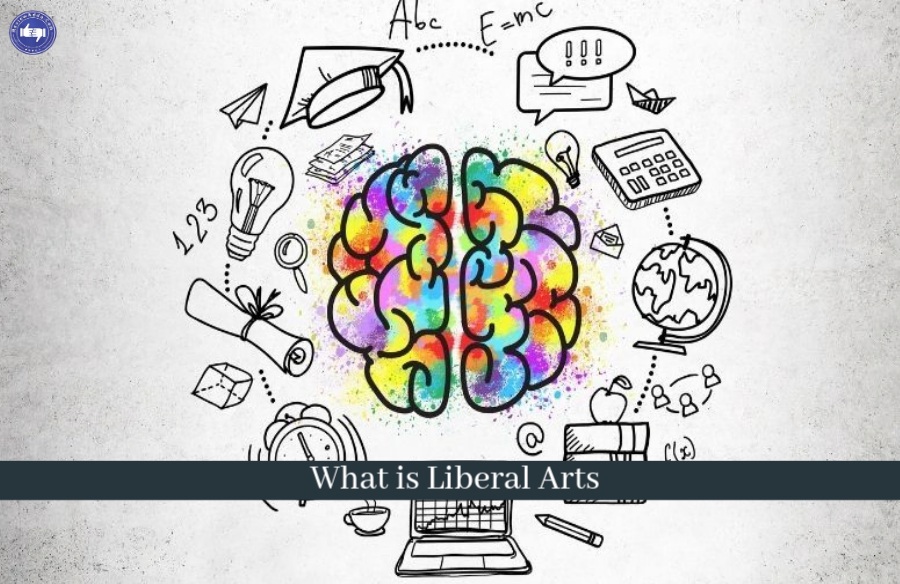Topic We Cover: Allied Science and Applied Science
1. Applied science
2. Allied Science
3. Courses offered in Allied Science and Applied Science
- Allied Science
- List of Common Courses of Applied Science
- Botany Course
- Ecology Course
- Environmental Science Course
- Genetics Course
- Biochemistry Course
- Biotechnology Course
4. B.Sc. in Allied Science and B.Sc. in Applied Science
- B.Sc. in Allied Science
- Overview
- Course details & Eligibility
- Syllabus
- B.Sc. Allied Health Sciences Course Suitability
- How is B.Sc. Allied Health Sciences Course Beneficial?
5. B.Sc. in Applied Science
- Overview
- B.Sc. in Applied Science: Course Highlights
- Eligibility for B.Sc. Applied Science
- Admission Process for B.Sc. Applied Science
- B.Sc. in Applied Science: Syllabus and Course Structure
- B.Sc. Applied Science Course Suitability
- How is B.Sc. Applied Science Course Beneficial?
6. Career in Allied Science and Applied Science
- Allied Science
- B.Sc. Allied Health Sciences Employment Areas
- B.Sc. Allied Health Sciences Job Types
- Fastest growing Allied health science careers
7. Medical Assistants
8. Cardiovascular Technologists and Technicians
9. Diagnostic Medical Sonographers
10. Physician Assistants
11. Respiratory Therapists and Respiratory
12. Athletic Trainers
13. Surgical Technologists
14. Clinical laboratory Technologists
15. Dietitians and Nutritionists
- Applied Science
- Some of the popular employment areas for B.Sc. in Applied Science
- B.Sc. in Applied Science graduate are hired in capacities
16. Top 20 Colleges for Allied Science and Applied Science
- Colleges for Allied Science
- Colleges for Applied Science
What is Allied Science and Applied Science
Applied science
Involvement of applying scientific theories into developing practical applications is known as Applied Science. Its application based approach to the regular science curriculum sets it apart from regular science courses. Applied Sciences aim attention on exploring new areas where scientific principles could be applied.

To develop more practical applications, applied science applies existing scientific knowledge, such as technology or inventions. In natural science, development that are basic science, also called pure science, improve information to predict and perhaps explain—thus somehow know—phenomena in the natural world.
Applied science applies the basic science toward practical aspire. Applied science is typically engg, which improves technology, although there might be feedback between applied science and basic science and: R&D. Medical sciences, for name medical microbiology and its clinical virology, are applied sciences that apply biology toward medical information and inventions, but not essential medical tech., whose growth is more specifically biomedicine or biomedical engineering.
Applied Science can also apply formal science, such as probability theory and statistics, as in epidemiology. An applied science applying both biological and statistical methods is called Genetic epidemiology.
Allied Science
In health care, Allied Health Science is a freshly established approach and forms to be a separate stream of health professionals providing to healthcare. The professionals of Allied health are an necessary part of the medical team along with nurses and physicians contributing their expertise to the curative, preventive, and rehabilitative care of the patients. The term 'Allied Health' is used to identify a cluster of health professions and covers as many as 100 occupational titles, exclusive of nurses, physicians, and a handful of others.
This will empower the candidates to confidently assist in technology-driven medical procedures. With the excessive improvement in the industry of health care, these graduates as Medical Technologists will be much in demand both within the nation and abroad. The course gives a base in national and global healthcare issues and trends, health promotion and disease prevention, ethical and legal issues, allied healthcare research, evidence-based practice, healthcare systems mgmt., and healthcare-based informatics. The program is designed to clearly with Associate of Arts allied health-related degree programs at community colleges.
Courses offered in Allied Science and Applied Science
Allied Science
|
Course Name |
Duration |
Eligibility |
|
B. Sc. (Microbiology) |
06 Sem. |
12th pass (PCB/M) with English as one of the subject with min. 45% marks (for SC candidates of Haryana State is 40%) |
|
Bachelor of Optometry |
06 Sem. + 01 Year Internship |
12th pass (PCB/M) with Eng. as one of the subject with min. 45% marks (for SC candidates of Haryana State is 40%) |
|
B. Sc. (Nutrition & Dietetics) |
06 Sem |
12th pass (PCB/M) with Eng. as one of the subject with min. 45% marks (for SC candidates of Haryana State is 40%) |
|
B. Sc. (Radio-Imaging Tech.) |
06 Sem. |
12th pass (PCB/M) with Eng. as one of the subject with min. 45% marks (for SC candidates of Haryana State is 40%) |
|
B. Sc. (Neuro-physiology Tech.) |
06 Sem. |
10+2 pass with min. 45% marks (for SC candidates of Haryana State is 40%) in Chemistry, Physics, and Biology taken together with English as one of the subjects. |
|
B. Sc. (Operation Theater Tech.) |
06 Sem. |
12th pass with min. 45% marks (for SC candidates of Haryana State is 40%) in Chemistry, Physics, and Biology taken together with English as one of the subjects. |
|
B. Sc. (Medical Lab. Tech.) |
06 Sem. |
12th pass with min. 45% marks (for SC candidates of Haryana State is 40%) in Chemistry, Physics, and Biology taken together with Eng. as one of the subjects. |
|
B. Sc. (Cardiac Care Tech.) |
06 Sem. |
12th pass with min 45% marks (for SC candidates of Haryana State is 40%) in Chemistry, Physics, and Biology taken together with Eng. as one of the subjects. |
|
B. Sc. (Renal Dialysis) |
06 Sem. |
12th pass with min 45% marks (for SC candidates of Haryana State is 40%) in Physics, Chemistry and Biology taken together with English as one of the subjects. |
|
Master of Optometry |
04 Semesters |
Must have passed the Bachelor of Optometry with min. 50% marks |
|
M. Sc. (Nutrition & Dietetics) |
04 Sem. |
Must have passed B. Sc. (Food Science & Nutrition)/B. Sc. (Nutrition & Dietetics)/B. Sc. (Applied Nutrition)/B. Sc. (Home Science)/B. Sc. (Biochemistry)/B. Sc. with PG Dip. in Nutrition & Dietetics OR B. Sc. (Life Sc./Biosciences) with Biochem. & Food & Nutrition as one of the subject/paper OR any other equiv. & relevant qualification |
|
M. Sc. (Radio-Imaging Technology) |
04 Sem. |
Must have passed B. Sc. RIT or equiv. degree |
|
M. Sc. (Operation Theater Tech.) |
04 Sem. |
Must have passed B. Sc. OTT/Anesthesia Tech. or equiv. degree |
|
M. Sc. (Medical Lab. Tech.) |
04 Sem. |
Must have passed B. Sc. (MLT)/B. Sc. (Nursing)/B. Sc. OR B. Tech. (Biotechnology)/ B. Sc. (Microbiology)/B. Sc. (Biochemistry)/B. Sc. (Life Sciences)/B. Sc. (Biological Sciences) with Microbiology or Biochemistry or Pathology as one of the subject or equiv. and relevant course |
|
M. Sc. (Microbiology) |
04 Sem. |
Must have passed B. Sc. (Microbiology)/B. Sc. (Biological Sciences)/B. Sc. (Life Sciences)/ B. Sc. Or B. Tech. (Biotechnology)/B. Sc. (MLT)B. Sc. (Nursing) or any other relevant qualification |
|
PhD (Nutrition & Dietetics) |
03 Year |
M. Sc. (Nutrition & Dietetics) with min. 55% marks |
|
PhD (Microbiology) |
03 Year |
M. Sc. (Microbiology) with min. 55% marks |
|
PhD (Radio Imaging & Tech.) |
03 Year |
M. Sc. (Radio Imaging & Tech.) with min. 55% marks |
List of Common Courses of Applied Science
Botany Course
This Undergraduate Course introduces students to plant structure and function, as well as basic plant anatomy, physiology and biology. The life cycles of various types of plants are covered, along with a general overview of the plant kingdom and how different species interact with one another. A study of plant differentiation, reproduction and taxonomy is also usually included.
Ecology Course
At the undergraduate level, the Ecology Course presents an intricate study of the ways in which organisms relate to and interact with one another and with their physical environment. Concepts such as reproduction and taxonomy are reintroduced here on a broader scale, and laboratory work teaches students to conduct ecological research studies, and to properly analyze and interpret the resulting data. At the graduate level, there are also evolutionary ecology courses, which focus on the principles of evolution from an ecological standpoint.
Environmental Science Course
While some Undergraduate Programs offer basic, 1-semester environmental science courses, the subject becomes far more extensive at the graduate level. Here, the course usually includes two semesters in an intensive sequence of learning, and topics include steady-state modes, thermodynamics, biogeochemistry and climatology. Additionally, there is a strong emphasis placed on mathematical models for environmental analysis. As a result, some previous mathematical background is required, such as completion of a calculus course.
Genetics Course
Primarily an Undergraduate Level Course, the study of genetics begins with the contributions of Gregor Mendel and moves forward until the modern era. Topics covered include mitosis, genetic crosses, gene mapping, and transformation and transduction. This course usually includes a laboratory aspect, where students learn the fundamental principles of genetics and their applications for plants, animals and humans, and engage in solving genetic problems from a practical and scientific perspective.
Biochemistry Course
The basic science behind biotechnology, biochemistry entwines organic chemistry with biology. Undergraduate biochemistry courses focus on intermediary metabolism, cell compounds and biomolecules. At the graduate level the course reviews the origins of life as well as cell bonding and transport, then moves into numerous other subjects such as DNA and RNA, chemical synthesis and genetic coding. Depending on the specific program, this may be a 2-semester progressive course, and it almost always requires previous completion of general or organic chemistry.
Biotechnology Course
At the undergraduate level, Introductory Biotechnology Courses focus on fundamental biochemistry, cell biology and molecular biology, and their relationship with the biotechnology industry. Other subjects covered include recombinant DNA techniques and bioethical issues such as cloning and stem cell research. As students move into the upper levels of the undergraduate programs and into master's degree applied science programs, the study of biotechnology expands to include manipulating prokaryotic and eukaryotic cells, genomic and proteomic data analysis, phylogenetic analysis, and the retrieval, identification, comparison and recognition of molecular sequences.
B.Sc. in Allied Science and B.Sc. in Applied Science
B.Sc. in Allied Science
Overview
Bachelor of Science in Allied Health Sciences is a 3-year graduate program. Allied Health Science is a freshly established approach in health care and comprise to be a separate stream of health professionals providing to healthcare. Allied health professionals are a necessary part of the medical team along with nurses and physicians providing their knowledge to the curative, preventive, and reformative care of the patients.
To identify a cluster of health professions the term is called ‘Allied Health’ and covers as many as exclusive of physicians,100 occupational titles, nurses and a handful of others. This will enable the candidates to assist confidently all the medical procedures which are driven by technology. With the excessive improvement in the healthcare industry, these graduates will be much in demand both within the country and outside as Medical Technologists.
The course supports a broad-based foundation in global and national health promotion and disease prevention, healthcare issues and trends, healthcare systems management, ethical and legal issues, evidence-based practice, allied healthcare research, and healthcare based informatics. The program is designed to coherently with Associate of Arts Allied Health-Related Degree Programs at community colleges.
Course details & Eligibility
Age Limit : Min. of 17 years and a max. of 23 years as on 31st Dec 2020 as per records
|
S. No |
Course |
Course Duration |
Eligibility Criteria |
|
1 |
Bachelor of Science Medical Radiologic Tech. (MRT) |
4 Years |
Pass in Plus Two with 60% Aggregate marks in Physics, Chemistry, Biology, English & 60% Marks separately in Mathematics. |
|
2 |
BSc Medical Lab. Tech. (MLT) |
4 Years |
emistry, Physics, Biology & English |
|
3 |
BSc Anaesthesia Tech. (AT) |
3 Years + 1 Year Internship Pass in 12th with 60% Aggregate Marks in Ch |
|
|
4 |
BSc Cardiac Perfusion Tech. (CPT) |
||
|
5 |
BSc Cardio Vascular Technology (CVT) |
||
|
6 |
BSc Intensive Care Technology (ICT) |
||
|
7 |
BSc Operation Theatre Technology (OTT) |
||
|
8 |
BSc Dialysis Therapy (DIT) |
||
|
9 |
BSc Diabetes Sciences (DBS) |
||
|
10 |
BSc Echocardiography Technology (ECT) |
||
|
11 |
BSc Neuro Electro Physiology (NEP) |
||
|
12 |
BSc Physician Assistant (PA) |
||
|
13 |
BSc Respiratory Therapy |
||
|
14 |
BSc Optometry (OPT) |
||
|
15 |
BSc Emergency Medical Technology (EMT) |
||
|
16 |
Bachelor of Audiology & Speech Lang. Path. (BASLP) |
Syllabus
Syllabus of Allied Health Sciences as prescribed by various Universities and Colleges.
|
Sr. No. |
Subjects of Study |
|
1 |
Anatomy |
|
2 |
Physiology |
|
3 |
Nutrition |
|
4 |
Biochemistry |
|
5 |
Nursing Foundation |
|
6 |
Psychology |
|
7 |
Microbiology |
|
8 |
English |
|
9 |
Introduction to Computers |
|
10 |
Sociology |
|
11 |
Medical-Surgical Nursing (Adult including geriatrics) I |
|
12 |
Pharmacology, Pathology & Genetics |
|
13 |
Community Health Nursing I |
|
14 |
Medical-Surgical Nursing (Adult including geriatrics) II |
|
15 |
Child Health Nursing |
|
16 |
Mental Health Nursing |
|
17 |
Nursing Research & Statistics |
|
18 |
Midwifery and Obstetrical Nursing |
|
19 |
Community Health Nursing II |
|
20 |
Management of Nursing Services and Education |
|
21 |
Communication and Education Technology |
 Get Updated Review ( Voice Based Alumni Feeback)
Get Updated Review ( Voice Based Alumni Feeback)
-
 Check Review (Alumni Feedback) - Lovely Professional University - [LPU] – Click Here
Check Review (Alumni Feedback) - Lovely Professional University - [LPU] – Click Here -
 Check Review (Alumni Feedback) - Amity University – Click Here
Check Review (Alumni Feedback) - Amity University – Click Here -
 Check Review (Alumni Feedback) - University of Petroleum and Energy Studies [UPES] – Click Here
Check Review (Alumni Feedback) - University of Petroleum and Energy Studies [UPES] – Click Here -
 Check Review (Alumni Feedback) - Pacific University – Click Here
Check Review (Alumni Feedback) - Pacific University – Click Here -
 Check Review (Alumni Feedback) - DIT University – Click Here
Check Review (Alumni Feedback) - DIT University – Click Here
B.Sc. Allied Health Sciences Course Suitability
- Allied health professionals are complicated with the delivery of health or related services belonging to the evaluation, identification, and dietary and nutrition services; prevention of diseases and disorders; rehabilitation and health systems mgmt.
- Graduates will have wide opportunities in all types of hospitals including health insurance companies, academic programmes of teaching hospitals, medical transcription firms, Medical research organizations, business process outsourcing companies, etc.
- Students can also pursue postgraduate programmes in healthcare management or health information administration.
How is B.Sc. Allied Health Sciences Course Beneficial?
- The course is beneficial to develop in-depth knowledge in health sciences and the theory base required for future studies or careers in a range of health disciplines.
- Graduates are prepared to assume supervisory, management, and/or educational positions.
- In addition, successful completion of this program allows students to pursue graduate education in the healthcare field.
- It makes graduates with additional skills, knowledge, and values to advance in the allied health profession; meet healthcare and societal delivery demands; and work in a variety of settings with diverse families, patients, and communities.
B.Sc. in Applied Science
Overview
1. Sc. (Applied Science) Degree Course concentrates, in general, on the uses of Science in modern society, and towards the specific needs of selected industries. It is a course which, apart from providing a student with a solid grounding on the theoretical features of basic sciences, also gives more importance on practical applications of scientific laws and procedures.
Those who have curiosity in science and have good interpersonal and communications skills are good suit for it.
2. Sc. (Applied Science) Degree holders hold the restricted opportunity to analyze the pharmaceutical, industrial, technological and commercial dimensions of Science. Thus, the applied science degree is a very compliant degree that can be tailored for a large number of career possibilities. With this degree, a student is better prepared to move into mgmt. careers within a company and be able to use science and maths for business and practical purposes.
B.Sc. in Applied Science: Course Highlights
Arranged below are a portion of the real highlights of the course.
|
Name of the course |
B.Sc. In Applied Science |
|
Course Level |
Graduation |
|
Duration |
3 years, full time/Distance Learning |
|
Stream |
Applied Science |
|
Examination Type |
Semester System/Yearly |
|
Eligibility |
10+2 with English and math |
|
Admission Process |
Students are admitted in B.Sc. in applied science on the basis of merit. On the basis of candidate’s performance the merit is prepared in higher secondary examination. For admitting students some universities also conduct the entrance test. Besides candidate’s academic knowledge, some colleges conducts interview |
|
Average Course Fee |
INR 15K to 5 Lacs |
|
Avg Starting Salary |
INR 2 Lakh to 12 Lacs |
|
Top Recruiting Companies |
Microsoft, Google, Genpact, Oracle, Accenture, Apollo, Adobe, Reliance, National Agri-Food Biotechnology Institute, Claridges, Wifi networks, IIT, APAC, Xcelris labs, ITC Infotech, HP, HCL |
Eligibility for B.Sc. Applied Science
For Pursuing a B.Sc. (Applied Science) Degree the basic eligibility criterion is qualifying 12th or equiv. exam in Science stream from a recognized board of the country. As qualifying criteria to secure admission in this degree course some reputed colleges and institutes demand a min. of 50% marks in 12th.
Also, to get Admission to their B.Sc. (Applied Science) degree course a few of the very reputed colleges and institutes do conduct entrance examination. In these colleges selection to the degree course is depends on marks secured in the final merit i.e. total marks aggregated in the final exams of 12th and the entrance exam.
Admission Process for B.Sc. Applied Science
On the basis of class 12th percentage the admission to the B.Sc.in Applied Science courses is done. For admission some universities also conduct their own entrance exam.
Bachelor of Science (B.Sc.) Programme offered by various colleges for 3 to 5 years. For this programme each college has different admission procedure. On the basis of the merit of class 12th they give admission.
For the admission to B.Sc. some private and public college also conducts examinations in Applied Science degree courses.
B.Sc. in Applied Science: Syllabus and Course Structure
By various Universities and Colleges Syllabus of Applied Science as prescribed below.
Main subjects covered in the discipline are:
|
SUBJECTS OF STUDY |
|
|
Animal Science |
Journalistic Writing |
|
Animal and Plant Bio-security |
Machine Troubleshooting |
|
Artificial Intelligence |
Materials Engineering |
|
Biology |
Materials Purchasing |
|
Ceramic Engineering |
Materials Science |
|
Computer Science |
Management |
|
Conservation Management |
Mathematics |
|
Construction Engineering |
Medical Terminology |
|
Diagnostic Test Analysis |
Microbiology |
|
Engineering Physics |
Morphology |
|
Environmental Technology |
Nanotechnology |
|
Electronics |
Optical Engineering |
|
Internet Security Services |
Plants |
|
Integrated Resource Management |
Plant Physiology |
|
Regional and Rural Business Management |
Quantum Computing |
|
Wildlife Management |
- |
B.Sc. Applied Science Course Suitability
- Those who have an interest in science and have good communications and interpersonal skills are a good suit for it.
- Candidates who want to contribute and investigate now principles in the field of science also are a good suit for this course.
- Those who want to have master’s degree in the very subject and then further go for research work also are capable of this course.
- They can join teaching jobs on a private basis and also can run their coaching centers.
How is B.Sc. Applied Science Course Beneficial?
- Both nationally and internationally, there is a Huge Range of Career Opportunities, such as in R&D, production in the scientific process industries occupational health and safety, teaching career, public health inspection, services industry, clinical laboratory science, health services administration, high-tech industry, biopharmaceutical industry, manufacturing technology, information technology, medical services, and many more.
- B. Sc. (Applied Science) degree holders hold the restricted opportunity to analyze the industrial, technological, pharmaceutical, and commercial dimensions of Science. Thus, for a large number of career possibilities the applied science degree is a very adaptable degree that can be tailored.
- With this degree, for business and practical purposes a student is better prepared to move into Management Careers within a company and be able to use science and mathematics.
- In general, B. Sc. (Applied Science) degree course concentrates, on the uses of Science in modern society, and towards the specific requirements of selected industries.
- B.Sc. (Applied Science) is a course which, apart from providing a student with a solid grounding on the theoretical aspects of basic sciences, also gives more emphasis on practical applications of scientific laws and procedures.
Career in Allied Science and Applied Science
Allied Science
B.Sc. Allied Health Sciences Employment Areas
- Colleges and Universities
- Hospitals
- Private Clinics
- Content Writing (Medical)
B.Sc. Allied Health Sciences Job Types
- Analytical chemist
- Biostatisticians
- Business Development Manager
- Clinical Data Coordinators
- Clinical Data Manager
- Clinical Project Manager
- Clinical Research Associates (CRA)
- Clinical Research Manager
- Clinical Research Manager
- Drug Development Associate
- Medical Writers
- Regulatory Affairs Manager
Fastest growing Allied health science careers
1. Medical Assistants
A fast growing profession, these specialists perform clinical and administrative duties at the offices of surgeons, doctors, chiropractors, and other medical specialists.
Education Requirements: finishes post-high school certificate or associate’s programs lasting between 1-2 years.
Salary: Medical assistants earn salaries averaging $24,610 annually.
2. Cardiovascular Technologists and Technicians
Cardiovascular Technologists and Technicians help doctors to treat and diagnose heart and peripheral vascular problems. Cardiovascular technologists often specialize in vascular, echocardiography, and cardiology technology. Cardiovascular technologists with expertise in invasive procedures are known as cardiology technologists. They get patients ready for balloon angioplasties and cardiac catheterizations. While administering these procedures, cardiology technologists monitor heart rate and blood pressure and notify doctors after detecting abnormalities. Technologists often also get patients ready for open-heart surgery and monitor them while stents or pacemakers are inserted into patients with clogged arteries.
Education Requirements: Most cardiovascular technologists earn associate’s degrees at community colleges or bachelor’s degrees at colleges and universities.
Salary: Cardiovascular technologists earn salaries averaging $38,690 annually.
3. Diagnostic Medical Sonographers
Diagnostic Medical Sonographers also referred to as ultrasound technicians or ultrasonographers, these specialists utilize sophisticated high frequency sound wave technology to take internal images of the body. These images are photographed, videotaped, and transmitted to doctors to make medical diagnoses.
Education Requirements: Most universities and colleges offer associate’s and bachelor’s degree programs in diagnostic medical sonography. Medical sonographers typically hold associate’s degrees.
Salary: The average salary for diagnostic medical sonographers is $52,490.
4. Physician Assistants
Under the direction of licensed doctors, Physician assistants offer medical services.
Education Requirements: Physician assistants are required to complete accredited training programs and pass the national certification exam. It takes full-time 2 years studying to complete a physician assistant training program.
Salary: Physician assistants practicing clinically on a full-time basis average $74,264 annually, one of the highest annual salaries for medical professionals.
5. Respiratory Therapists and Respiratory
Respiratory Therapists and Respiratory specialists, also referred to as respiratory care practitioners, treat, assess, and assist patients with cardiopulmonary and other breathing problems. Respiratory therapists are responsible for overseeing respiratory therapy technicians, administering diagnostic tests, and providing therapy. Respiratory therapy technicians must adhere to specific respiratory care treatments under the supervision of doctors or respiratory therapists.
Educational Requirements: To begin a career in this field, you must hold an associate’s degree. Bachelor’s degrees are also available in respiratory therapy.
Salary: Respiratory therapists earn salaries averaging $43,140 annually.
6. Athletic Trainers
In the field of allied health, Athletic training is a rapidly growing and unique career. Athletic trainers treat injured people and teach them how to avoid injury.
Educational Requirements: Most athletic trainers are required to hold a bachelor’s degree from schools with accredited programs.
Salary: They earn salaries averaging $33,940 a year.
7. Surgical Technologists
You will only be required to complete limited training, to become a surgical technologist, making this a great job for individuals wanting to begin their careers immediately. Surgical technologists, referred to as operating room or surgical technicians and scrubs, help surgeons and doctors performing surgical and other medical procedures.
Educational Requirements: Surgical technologists are trained at programs available at hospitals, universities, vocational schools, and community colleges.
Salary: Surgical technologists earn salaries averaging $34,010 a year.
8. Clinical laboratory Technologists
For aspiring health specialists this is an ideal career interested in wearing a white coat daily. These professionals, commonly known as medical technologists or clinical laboratory scientists, administer laboratory tests vital in diagnosing and treating health problems. Clinical laboratory technologists review and analyze cells, tissue, and body fluids.
Educational Requirements: Most clinical laboratory technicians hold associate’s degrees or professional certificates from vocational schools or hospitals.
Salary: Clinical laboratory and medical technologists earn salaries that average $45,730 a year.
10. Dietitians and Nutritionists
By planning and overseeing nutrition programs and initiatives these specialists emphasize healthy lifestyles.
Educational Requirements: Most dietitians and nutritionists hold bachelor’s or graduate degrees in food service systems management, nutrition, dietetics, or similar majors.
Salary: Dietitians and nutritionists earn annual salaries averaging $43,630.
Applied Science
Students who have a B.Sc degree in applied science also have an excellent employment opportunities, just like an academic course. In the field of science jobs for B.Sc in applied science graduates are not just restricted but also they can explore others areas like engineering, management, law etc.
Students can work in various areas after the completion of the B.Sc in applied science course, which include both science & non-science fields. For the students the job opportunities available are not only great in terms of salary package, but also a satisfying job experience.
B.Sc. in Applied Science graduates have a wide assortment of alternatives accessible regarding subjects, points, and field. In their separate field they have an substitute to seek after a post-graduation degree. Understudies can likewise join non-science ace degree courses, for example, administration, activity, PC innovation, news coverage, and so on after the consummation of B.Sc. degree in applied science.
Some of the popular employment areas for B.Sc. in Applied Science:
- Agriculture Industry
- Biotechnology Firm
- Chemical Industry
- Chemicals Manufacturing Companies
- Cosmetic Companies
- Educational Institutes
- Forest Services
- Geological Survey Departments
- Heavy Chemical Industries
- Hospitals
- Industrial Laboratories
- Medical Research
- Manufacturing and Processing Firms
- Medical Laboratories
- Petroleum Companies
- Pharmaceutical Companies
- Seed and Nursery Companies
- Space Research Institute
- Testing Laboratories
- Waste-water Plant
- Wildlife and Fishery Departments
B.Sc. in Applied Science graduate are hired in capacities as follows:
- Biology Researcher
- Clinical Research Specialist
- Clinical or Laboratory Technician
- Environmental Consultant
- Laboratory Technician
- Lecturer
- Plant Biochemist
- Pharmacist
- Science Adviser
- Science Technician
Top 20 Colleges for Allied Science and Applied Science
Colleges for Allied Science
- Sri Ramachandra Medical College & Research Inst. ( SRMCRI) , Chennai
- Shyam Inst. Of Engg & Tech. ( SIET) , Dausa
- Chitkara University ( CU) , Solan
- Chitkara University ( CU, Patiala) , Patiala
- Datta Meghe Inst. Of Medical Sc. ( DMIMS) , Wardha
- Adesh University , Bhatinda
- Chettinad Group Of Colleges , Kanchipuram
- Noida International Univ. ( NIU) , Gr. Noida
- Chettinad Academy Of Research And Edu., Chengalpattu
- Sri Gokulam College of Nursing
- Rajiv Gandhi Univ. of Health Sc. - RGUHS
- Manipal Academy of Higher Edu. - MAHE
- Era University - EU
- Christian Medical College - CMC Vellore
- Bharath Inst. of Higher Edu. and Research - BIHER
- Sri Jayadeva Inst. of Cardiovascular Sc. and Research
- Sri Sathya Sai Inst. of Higher Medical Sc. - SSSIHMS
Colleges for Applied Science
- Bharath Inst. of Higher Edu. and Research - BIHER
- Parul University
- Sri Ramakrishna Engineering College - SREC
- University of Allahabad
- University of Delhi - DU
- Loyola College Chennai
- Christ University
- Miranda House College
- The Oxford College Of Science
- Vellore Institute Of Technology Vellore
- Mount Carmel College
- Lovely Professional University (LPU)
- JBAS College
- Voorhees College Vellore
- Gujarat University
- SNDT Women’s University






